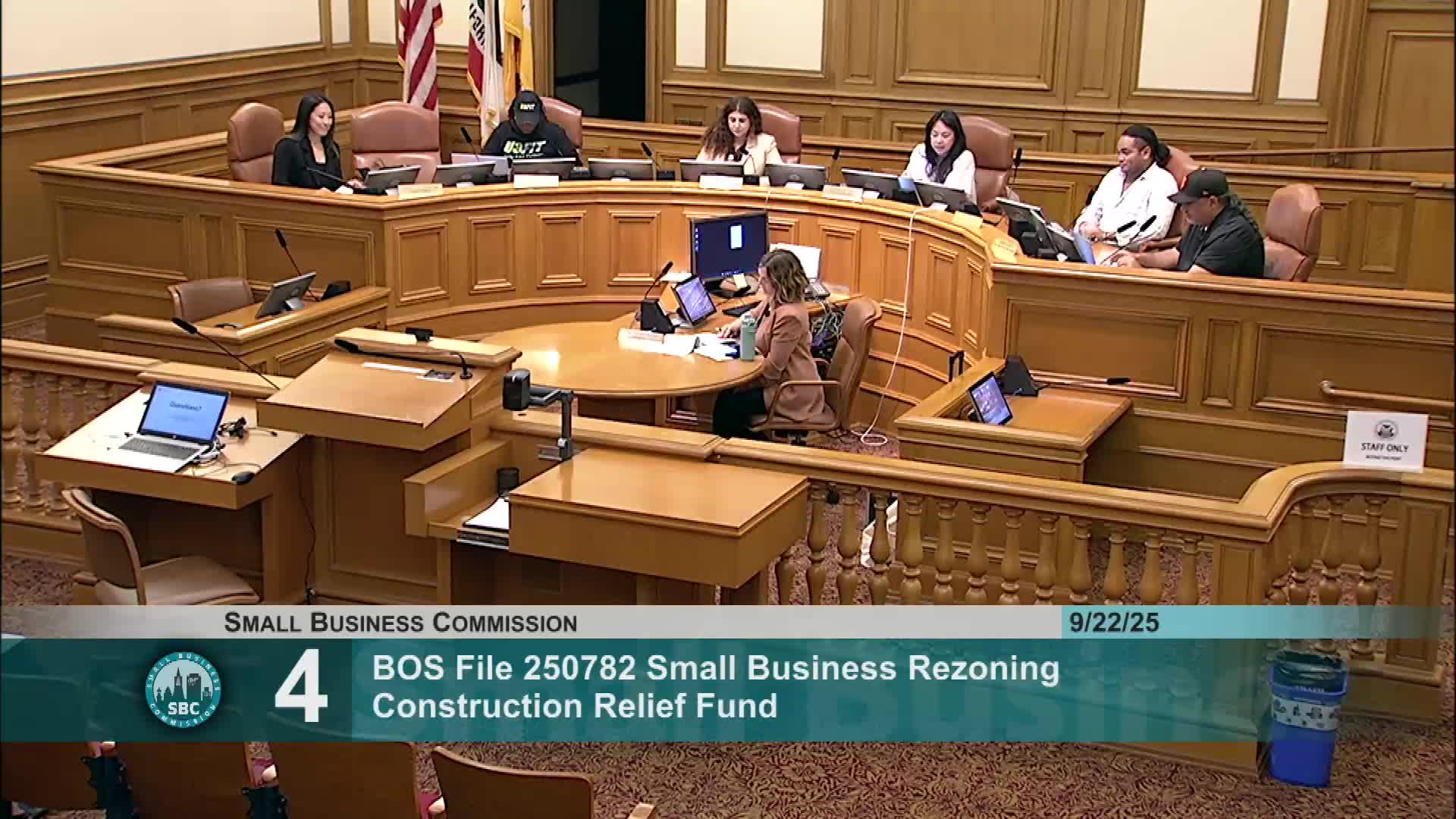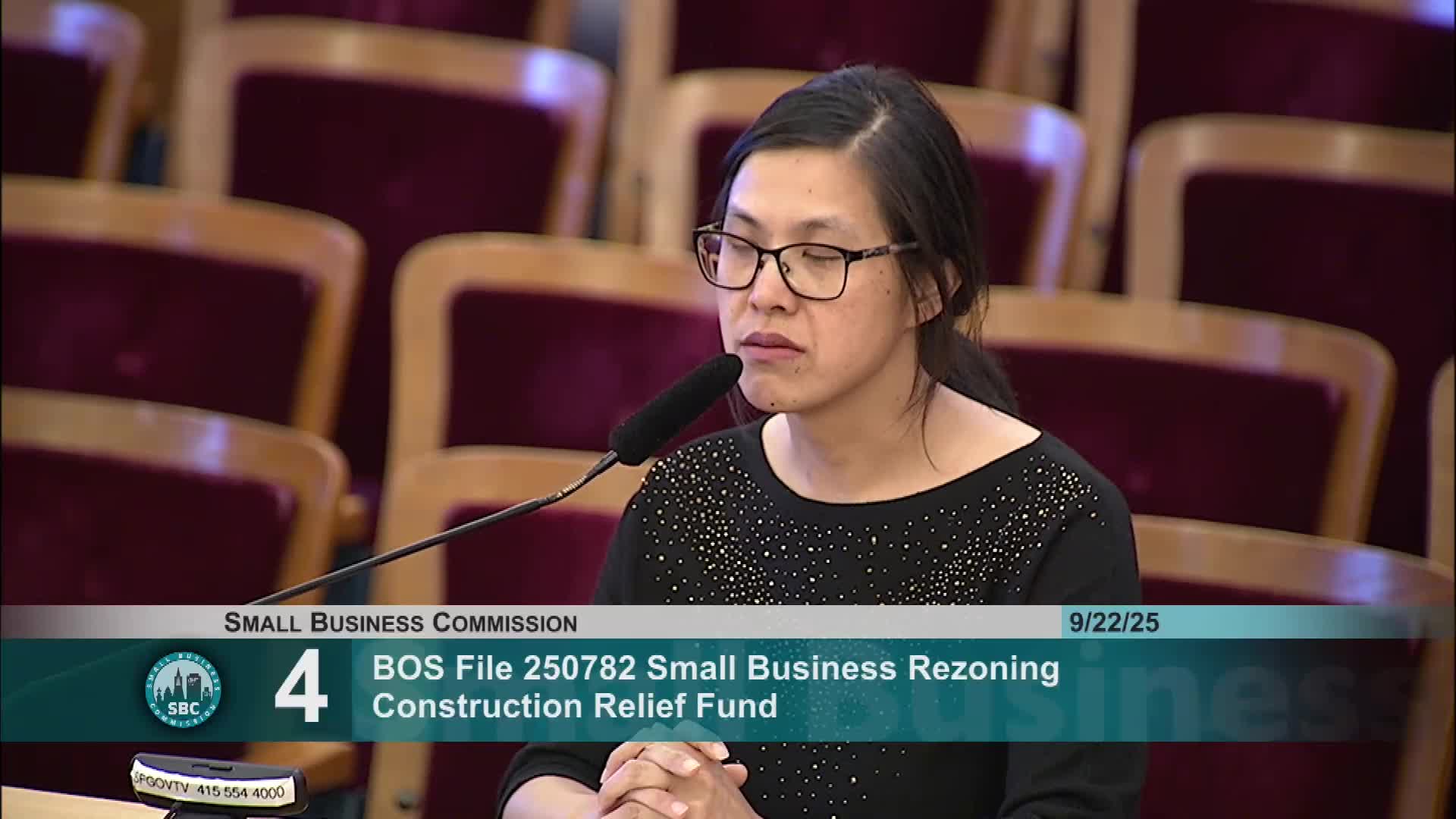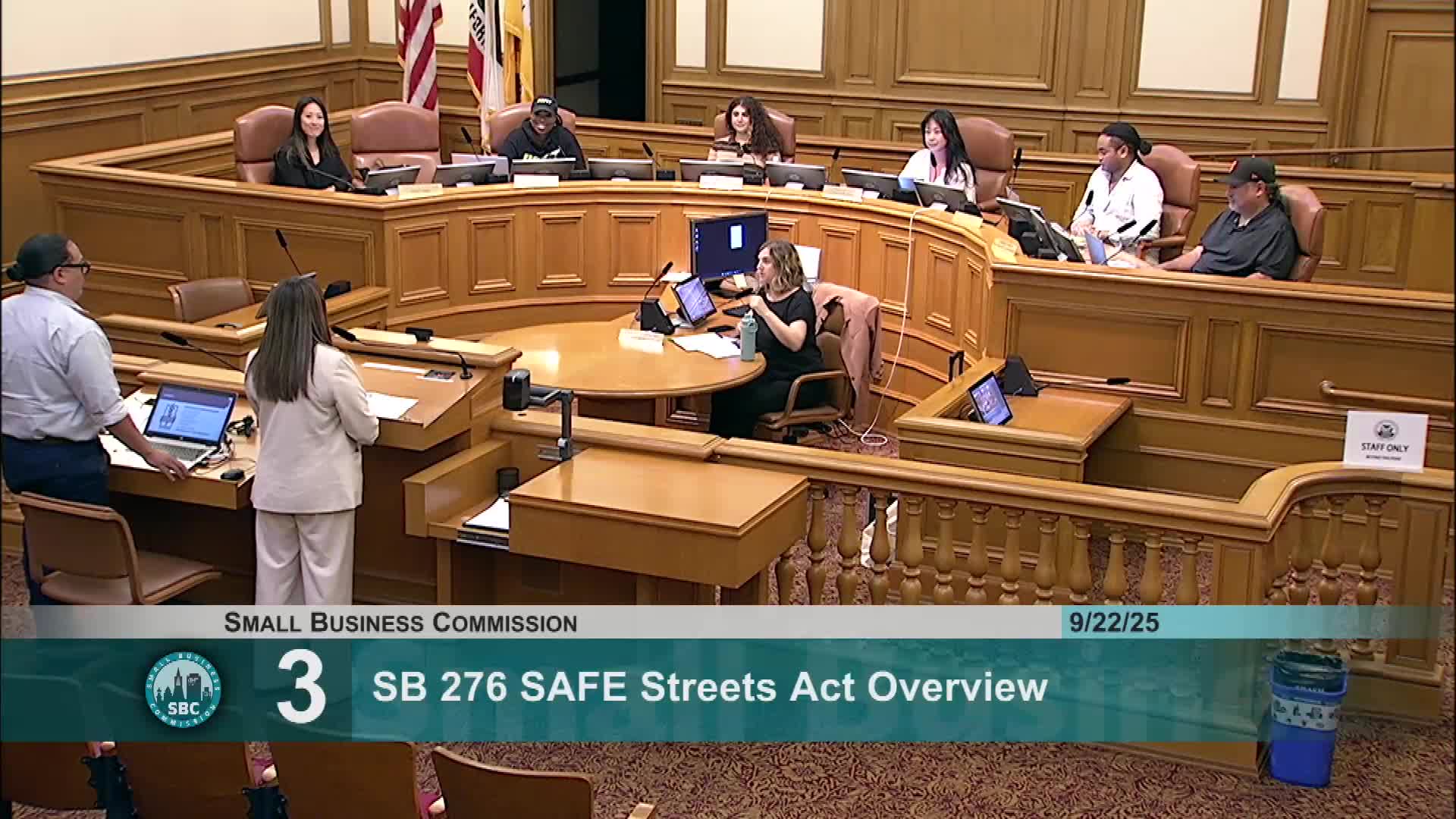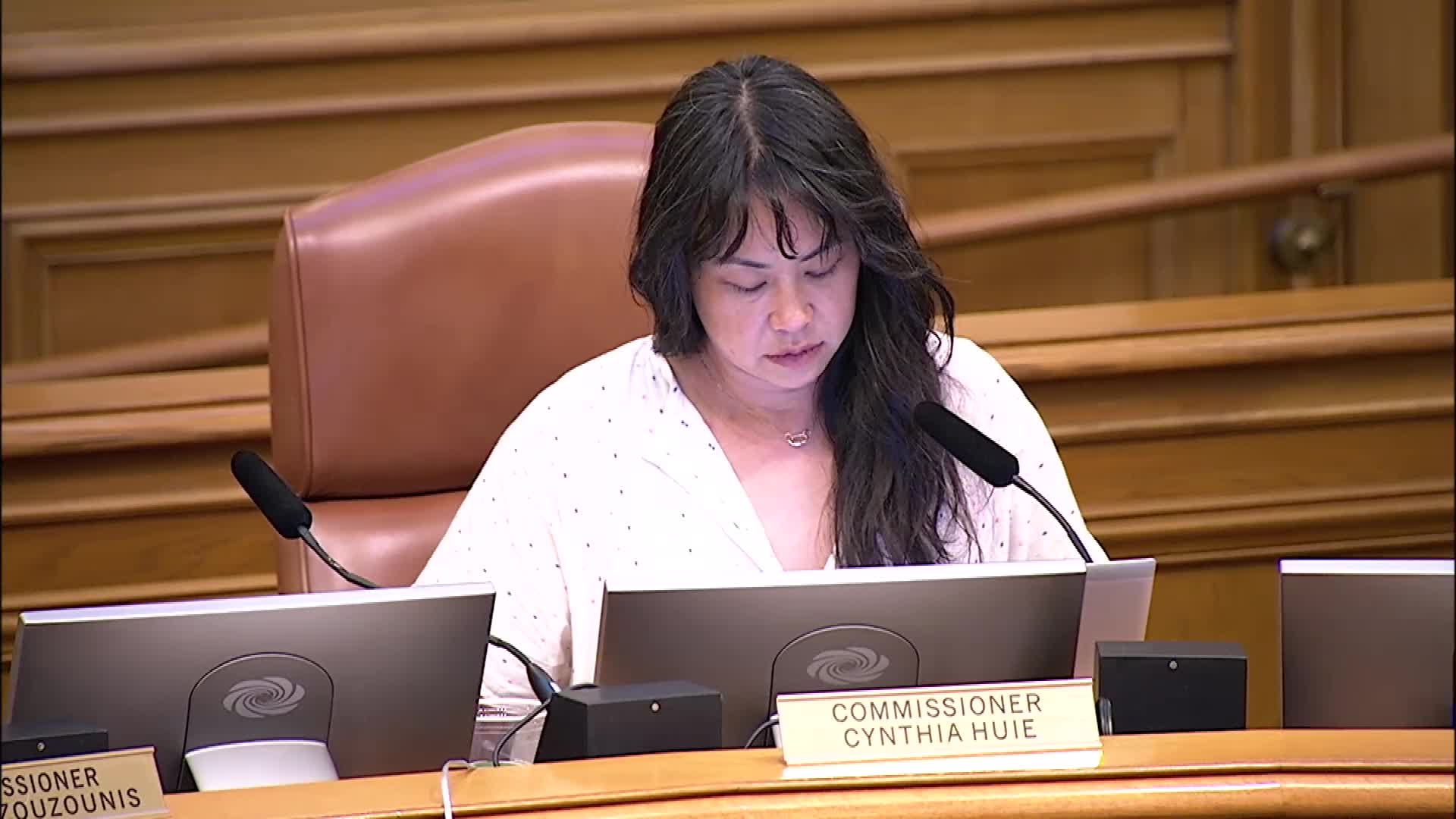Article not found
This article is no longer available. But don't worry—we've gathered other articles that discuss the same topic.

Small Business Commission approves Aug. 25, 2025 meeting minutes

Commission backs proposal to create small-business rezoning construction relief fund; supervisors to draft ordinance

City staff brief commissioners on Senate Bill 276 (Safe Streets Act) targeting sale of stolen goods on sidewalks

